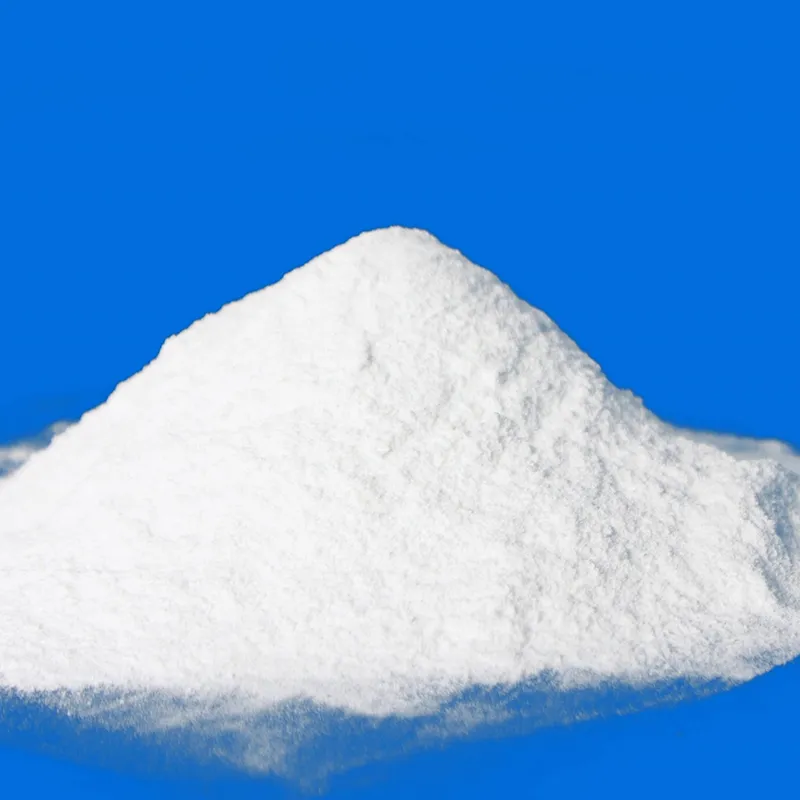
Feb . 11, 2025 18:50
Back to list
emulsifier 471
Emulsifier 471, a monoglyceride derived from vegetable oils or animal fats, plays an integral role in the food and cosmetic industries. As an emulsifying agent, it allows water and oil to blend seamlessly, enhancing the texture and consistency of numerous products. This additive, also known as E471, is often found in baked goods, confectioneries, margarines, and even some pharmaceuticals and cosmetics. Understanding its applications and benefits can provide insight into its prevalence and increasing demand.
Experts recommend those concerned about its origin to scrutinize product labels or reach out to manufacturers for clarification. Transparency in sourcing and manufacturing processes fortifies trust and enables informed decision-making among consumers. Such practices also contribute to the industry's accountability in promoting safe and ethical production standards. Emulsifier 471’s sustainability credentials are gaining attention as brands prioritize eco-friendly ingredients. Emphasis on sourcing from renewable plant-based oils positions this emulsifier within the framework of sustainable production, aligning with broader environmental goals. As consumers increasingly seek sustainably-produced goods, the demand for plant-based emulsifiers like 471 is expected to rise, opening the door for innovative practices in cultivation and extraction that further minimize environmental impact. Emulsifier 471's role across industries is supported by a wealth of scientific research and practical application. It stands as a testament to the power of chemistry in enhancing product quality and consumer experience. Manufacturers continue to innovate, harnessing emulsifier 471's potential in novel applications and reinforcing its status as an indispensable additive in modern production. By blending functionality with safety, emulsifier 471 exemplifies the potential of food and cosmetic additives to meet the complex demands of today's market. Its persistent adaptability and compliance with regulatory standards underscore its significance, creating a bridge between scientific expertise and consumer trust. As this emulsifier continues to evolve, so too does its capacity to contribute positively to diverse industries, driven by a commitment to quality, innovation, and transparency.


Experts recommend those concerned about its origin to scrutinize product labels or reach out to manufacturers for clarification. Transparency in sourcing and manufacturing processes fortifies trust and enables informed decision-making among consumers. Such practices also contribute to the industry's accountability in promoting safe and ethical production standards. Emulsifier 471’s sustainability credentials are gaining attention as brands prioritize eco-friendly ingredients. Emphasis on sourcing from renewable plant-based oils positions this emulsifier within the framework of sustainable production, aligning with broader environmental goals. As consumers increasingly seek sustainably-produced goods, the demand for plant-based emulsifiers like 471 is expected to rise, opening the door for innovative practices in cultivation and extraction that further minimize environmental impact. Emulsifier 471's role across industries is supported by a wealth of scientific research and practical application. It stands as a testament to the power of chemistry in enhancing product quality and consumer experience. Manufacturers continue to innovate, harnessing emulsifier 471's potential in novel applications and reinforcing its status as an indispensable additive in modern production. By blending functionality with safety, emulsifier 471 exemplifies the potential of food and cosmetic additives to meet the complex demands of today's market. Its persistent adaptability and compliance with regulatory standards underscore its significance, creating a bridge between scientific expertise and consumer trust. As this emulsifier continues to evolve, so too does its capacity to contribute positively to diverse industries, driven by a commitment to quality, innovation, and transparency.
Next:
Latest news
-
Understanding Synthetic Rubber OptionsNewsApr.27,2025
-
Trichloroisocyanuric Acid: Essential for Clean and Safe WaterNewsApr.27,2025
-
Sodium Dichloroisocyanurate: Key to Safe Water TreatmentNewsApr.27,2025
-
Sodium Acid Pyrophosphate: Essential in Modern Food ProcessingNewsApr.27,2025
-
Essential Water Treatment ChemicalsNewsApr.27,2025
-
Denatured Alcohol and Its Industrial UsesNewsApr.27,2025
-
The Versatile Uses of Sodium BicarbonateNewsApr.24,2025
HOT PRODUCTS
Hebei Tenger Chemical Technology Co., Ltd. focuses on the chemical industry and is committed to the export service of chemical raw materials.
-

view more DiethanolisopropanolamineIn the ever-growing field of chemical solutions, diethanolisopropanolamine (DEIPA) stands out as a versatile and important compound. Due to its unique chemical structure and properties, DEIPA is of interest to various industries including construction, personal care, and agriculture. -

view more TriisopropanolamineTriisopropanolamine (TIPA) alkanol amine substance, is a kind of alcohol amine compound with amino and alcohol hydroxyl, and because of its molecules contains both amino and hydroxyl. -

view more Tetramethyl Thiuram DisulfideTetramethyl thiuram disulfide, also known as TMTD, is a white to light-yellow powder with a distinct sulfur-like odor. It is soluble in organic solvents such as benzene, acetone, and ethyl acetate, making it highly versatile for use in different formulations. TMTD is known for its excellent vulcanization acceleration properties, which makes it a key ingredient in the production of rubber products. Additionally, it acts as an effective fungicide and bactericide, making it valuable in agricultural applications. Its high purity and stability ensure consistent performance, making it a preferred choice for manufacturers across various industries.











